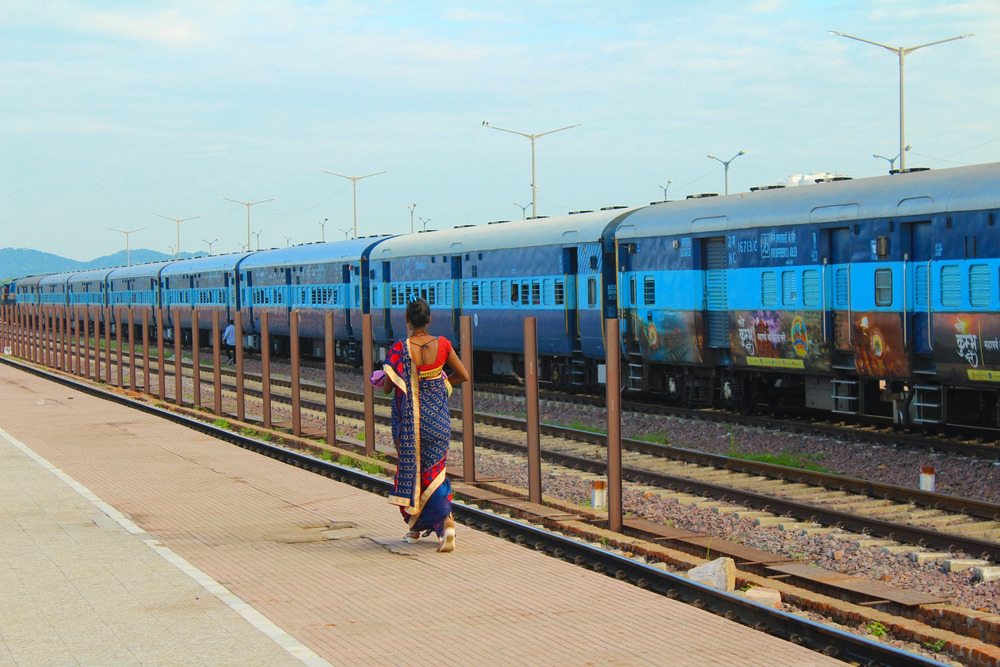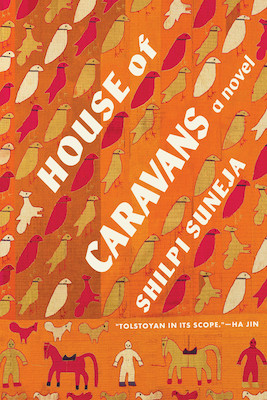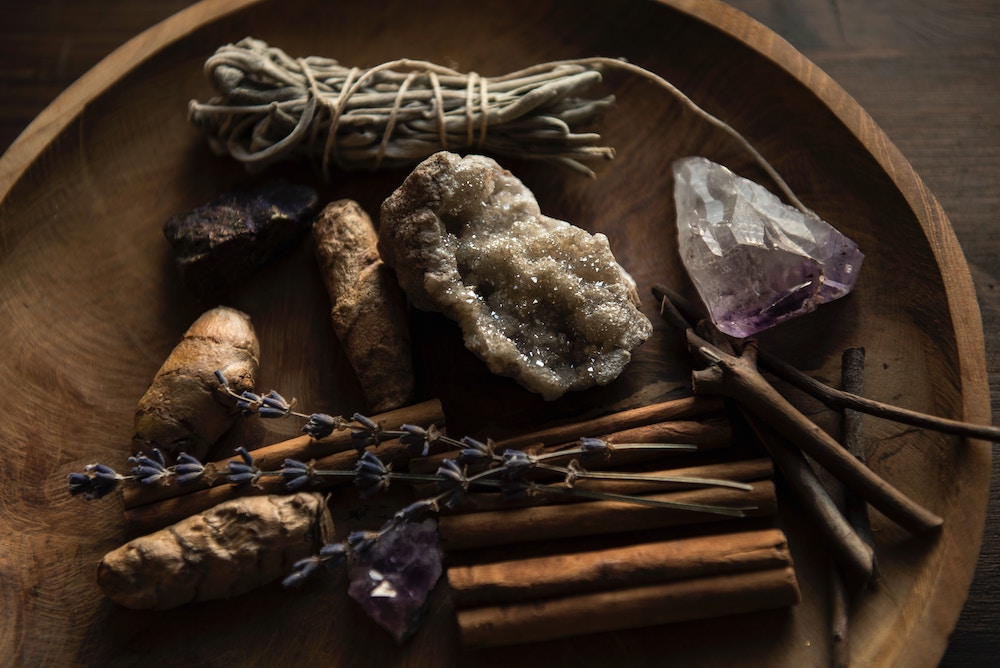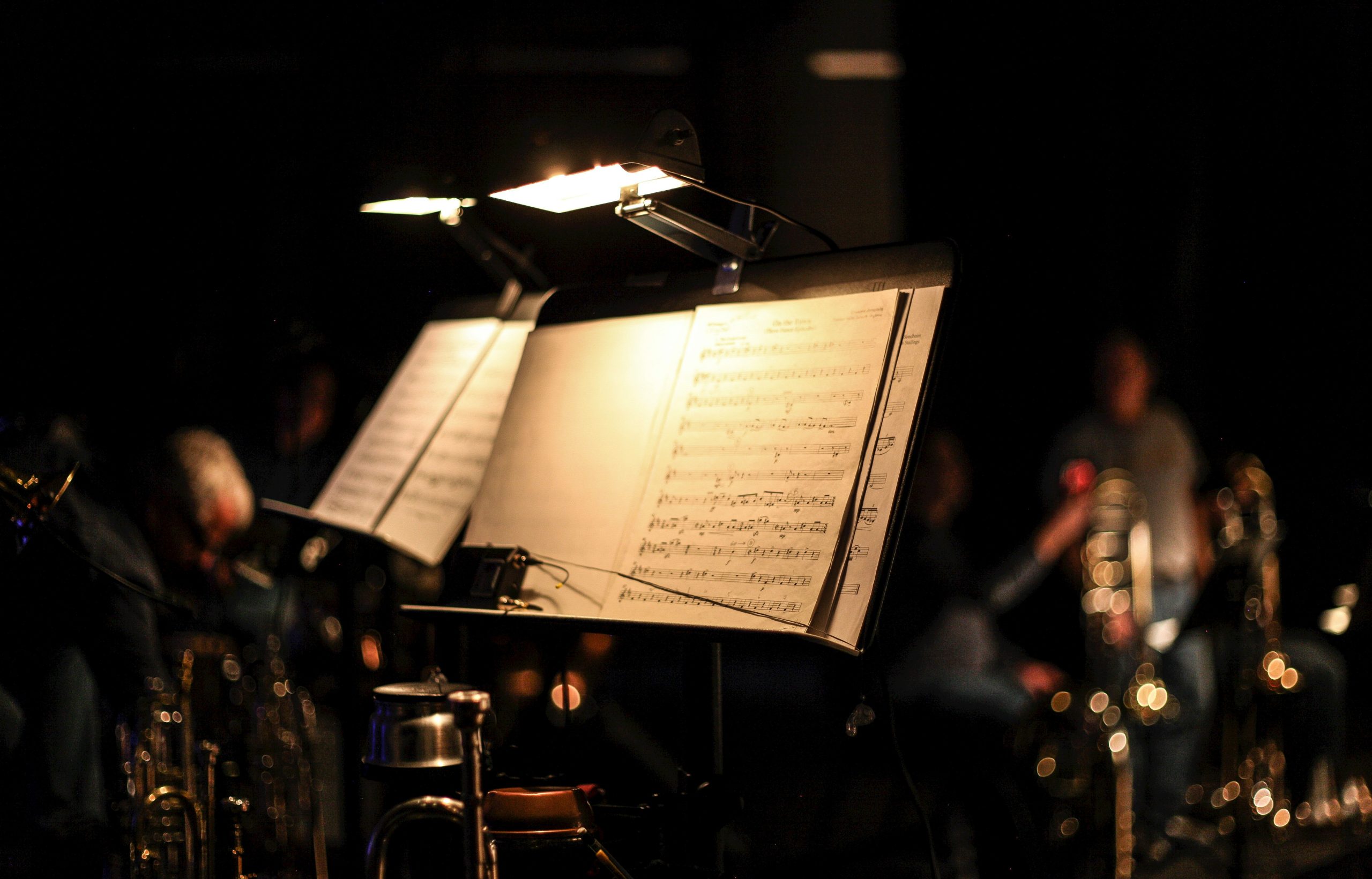Interviews
Impossible Love Across the Partition
Shilpi Suneja’s novel "House of Caravans" imagines the familial stories that were silenced and went untold

The moment I learned that Shilpi Suneja’s debut novel House of Caravans was about Partition, I reached out to see if she would be interested in doing this interview. All four of my grandparents lived through this event in Punjab—the state that was split to create Pakistan days after India gained independence from Britain in 1947—yet they rarely spoke of this bloody time, even to their own children. My father, whose family is Sikh, was born in Lahore, which would soon become part of the new nation for Muslims. He was a months-old infant when his parents fled across the newly created border, yet only asked his own father about it once, though they spoke and corresponded extensively over the decades about many, many other things. My mother, whose family is Hindu, similarly knows only one or two details passed down by her own mother. Reading Suneja’s novel proved to be an excellent way for me to begin excavating this context for my own family’s history.
Though House of Caravans opens with an image of the infamous trains full of the dead pulling into the stations, it is primarily an epic tale of one family’s love stories—the hopeful, passionate, impossible, doomed loves that reverberate across generations. Narrator Karan Khatri tells of his Hindu granduncle Chhote Nanu’s infatuation with the learned Muslim Anglo-Indian sex worker Nigar Jaan, who also happens to be the mistress of the British superintendent of police Chhotte Nanu tries to assassinate and mother of that man’s child. Karan’s grandfather Barre Nanu likewise pursued an ill-fated marriage with the daughter of a prominent Pakistani official after he was allotted that family’s house on the Indian side of the new border. Karan’s mother had relationships with both a Muslim and a Hindu man that she never liked to discuss, leading Karan and his sister Ila to try to unbury the mysteries of their own origins amid the renewed anti-Muslim sentiments of the immediate post-9/11 era.
Here, Suneja and I discuss her characters’ attractions to the addictive drama of impossible loves, the heightened stakes of Partition for people in interfaith relationships, private and public silences, and the intergenerational traumas and hopes of families who experienced this deadly historical event.
Preety Sidhu: Let’s start with what you heard or didn’t hear about Partition growing up. My grandparents lived through it but told my parents very little. How was it in your family?
Shilpi Suneja: I so appreciate the fact that you also have Partition stories that are bubbling in your family. In mine, there’s a similar sort of silence around Partition. And actually, the official silence is louder than the silence that families have.
What I heard was tidbits, not necessarily around that huge topic of Partition, but about my grandparents lives across the border in Lahore, when they didn’t have children or when they were young or children themselves. So those kinds of details, wrapped around in nostalgia, harkening back to the good old days when everyone had brass pots and your wealth could be measured by the amount of gold you gave in dowry. I heard little tidbits about the kinds of shops that my maternal grandfather and his family owned and ran.
Nothing negative, nothing sad, was passed down. Those details would come up only very, very rarely when my grandmother, who outlived my grandfather, would sort of mutter in rage or anger, in times when she was reminiscing, about family members who had done her wrong. So stereotypes sort of come out at that time. Oh, is that person going to marry a Muslim person? That’s when those stories come out. Oh, well, the things we’ve seen. And that’s all that they would say.
So there was an interesting mix of silence and verbosity. I played around with that. I’d research what I didn’t know and use the details that I did know as structural elements, the scaffolding to build stories around.
PS: You mentioned official silence earlier, as opposed to familial silence. Can you talk more about that?
SS: Yeah, so I was schooled in India, as well as the U.S., up until the 10th grade. The textbooks will tell you like the five tenets of Buddhism, what Gandhi did for the nation and why he’s the father of the nation, what started World War One and World War Two, all these details that you learn on rote.
By loving each other, are we making the world a better place or not?
But woefully silent about the Partition. And the reason behind that is, while they were partitioning the nation, they were also gaining independence. So the official language—and not just language, the official emotional stance that the whole nation has to take—is: we are going to be positive about independence! Independence overshadowed all the blood and the gore that went on, they pushed it into the background. So the textbooks for the next 50, 60, …76 years is just basically: we got independence and Gandhi chucked the British out, and that’s what gets sang at the movies. They had to create this happy persona because it’s a time of celebration.
But in the background we all know that there was a lot of bloodshed at the time and not so much celebration. A lot of anxiety, a lot of uncertainty, and a lot of loss of life and homes.
PS: How did the way Partition was talked about, or not talked about, when you were growing up inform your decision to make it the subject of your first novel?
SS: I started with my own nostalgic feeling for my hometown—where I was born and where my mother was born—Kanpur, which is an industrial town near Delhi.
I knew there was so much more in the background than just me missing that home. It took a long time to figure out that it’s not just my loss. It was my mother’s loss and my grandfather’s loss. All those emotional things that you feel but cannot articulate in that moment. The novel was such a great medium to channel that and excavate all those generational layers of stories that are in that house. That feeling of nostalgia, of missing home, and figuring out it’s not just a home and not just my loss. It’s my grandfather’s loss of Lahore, which is in the walls of that house.
PS: This novel features so many relationships that are attempts to love across prescribed divisions—race, religion, nationality, and so on. The central love story is between the narrator’s Hindu granduncle and an Anglo-Muslim sex worker of relatively high birth and education. What inspired this pairing for you and what were you hoping to explore with their relationship?
SS: I’ve mentioned my grandma and her angst around certain family members. In the last years of her life, she’s in bed and telling us stories…or not really stories, she’s going off about some uncle who did something at some point. And everyone listening to her, her children—my aunts and uncles—are sort of in shock and not saying anything. I’m a 13-year-old just listening and trying to piece together these stories. That’s where fiction helps in imagining exactly what people did to one another and why people are carrying so much angst for decades.
This pairing was basically my attempt at creating a character and figuring out exactly what this person did to piss off his family members and his larger community. What does it mean to be ambitious, not just in terms of getting degrees, but ambitious in love and life, and biting off more than he could chew.
Actually, another reason that now occurs to me. I studied English at New York University and one of my professors—she’s a foremost feminist scholar—she and I would argue about colonialism. She would tell these anecdotes about people she knows in England. This one person, his daughter married an English man. This is an Indian guy, in his 60s or 70s. His daughter married an English man and the father would apparently salute his son-in-law every morning. That kind of racial—I don’t know if people still do that, but that story remained with me and I was thinking, is this emotionally true? It makes sense because the middle class would say things like the British gave us trains. They may not know the emotional cost of colonialism but they know the trains ran on time and we got trains. That’s these opposite camps thinking: where you absolutely hate the British and you know colonialism was definitely bad, then there’s this opposite camp that says, well the trains were good, they connected all of India, and then saluting your white son-in-law every morning. How do you fit these very opposing views into the same family? It’s a way of creating conflict and I thought, if I have to write about colonialism, how nuanced can I get? Given the constraints of Partition and my own family stories, how much complexity can I add?
PS: Chhote Nanu’s love for Nigar Jaan in a way inspires his older brother’s love for a Muslim woman with whom he is both brought together and torn apart from by Partition. And the daughter of this short marriage—the narrator’s mother—ends up in short-lived loves with both a Muslim then a Hindu man, leaving the narrator and his sister struggling to piece together their own life’s histories amidst all the fracturing and silence. How did you think about inter- or transgenerational trauma playing out in this family?
SS: I love that you read the book through these love stories because those are the hearts of the book. You can say inter-caste or inter-religious, but to me they’re just love stories.
I read trauma in the littlest things. Trauma doesn’t have to be a big thing like leaving behind your home.
And the trauma, I mean, I read trauma in the littlest things. Trauma doesn’t have to be a big thing like leaving behind your home. People did experience that, but it could be something simple like not having your mom to braid your hair every morning. I read trauma into that. Going to the nuances, the minutiae of the Partition—not just during the division but two generations removed—where did your mother learn how to mother? Did she learn it from someone who was emotionally affected by the Partition? Then you would see those shades in your mom as well. Trauma comes into play when you think about who you want to love and not love. I tried to reflect that trauma, that even the small moments can have it.
PS: Each of these love stories happens and then there are forces pulling these people apart. How much is being passed down through the family culture, but also how much is it that the world around them is or isn’t changing? Was one of those more compelling to you than the other? Were you writing more to explore the family and what they could control or the forces that were outside of their control that were going to rip apart these loves no matter what?
SS: Those happen in tandem, right? Maybe it’s more interesting when things are harder for you, and there are forces playing at you to divide you. If it wasn’t such a taboo to do something, would you do it? Some of us who think we’re rebels, we wouldn’t.
Especially with Bebe’s Hindu husband, you could say that was the marriage that was supposed to work out because same religion, same caste, same everything. It should have worked out and yet it didn’t. I think that was important to highlight, that it’s not always the outside forces. Sometimes the inner turmoil messes you up even more than what’s going on outside.
PS: I’ve been thinking about this a lot lately and I can maybe see it in your characters as well, that things are most exciting and compelling to them when they’re the most difficult, the most dramatic. The impossible loves are going to be the ones that are exciting to chase.
SS: I think so, and maybe you can say that’s the sort of person I am. I don’t know, are you that sort of person?
PS: Yeah, absolutely. I don’t know who isn’t. I’m sure there are people out there who aren’t, but I’ve noticed that among myself and many people that I love.
SS: I suppose you could turn this into a craft question and ask: can you write about a very stable marriage? There are ways of writing about stable marriages, and the conflict is somewhere else. But for this book, the conflict needed to be the relationships and are they going to last or bring heartbreak?
PS: Which came first for you? This may be a chicken-and-egg question, but there are at least three generations where these Hindu-Muslim relationships play out. Was it that you wanted to write about Partition, and the people who that’s going to impact the most are in these interfaith relationships? Or was it that the interfaith relationships—those types of impossible relationships—are the most compelling and Partition paired well with that?
SS: There are lots of books on Partition, and there’ll be more and more as our generation and the next tackle these themes. Some books don’t deal with interfaith relationships, they deal with what happens to one Muslim family or one Hindu family, their economic turmoils for example.
Given the constraints that I had, figuring out what was the milieu in which my grandparents grew up, that determined the direction I took towards exploring interfaith marriages and loves. I heard them talk so much about loving Urdu poetry, not knowing any language other than Persian and Urdu. And that getting completely excised as soon as, you know, August 15, 1947. Here’s this new nation, and here’s its textbooks, and here’s its official language. That excision must have caused them to crave certain things, crave certain people, crave certain dangers. Love is definitely one of those dangers. Love is so dangerous, when you think about disobedience.
PS: Which pairs very well with Partition. Because, it’s high stakes for everyone, but who has the highest stakes? Somebody who is in love with somebody on the other side. To make those impossible choices, to have any choice. The dramatic tension certainly played well there.
SS: Exactly.
PS: There’s trauma, and there’s also an intergenerational hopefulness (I would say)—or perhaps foolishness (Chhote Nanu would say)—in each of the family members pursuing these loves as far as the relationships will go. How did you think about intergenerational patterns of hope or willingness to love, or stubbornness or artistic inclinations—qualities other than trauma, playing out in this family?
SS: You just inherit these things without noticing, right? They’re more just like gestures. I sometimes notice I’m laughing embarrassedly like my mom, and feel like I inherited her hopeless hopefulness, that’s the best I can put it right now. These are under your skin because you see these people, and you see them in certain situations, and there’s no way except to copy them, I think. You just inherit the hopefulness.
Of course, things change over time. In India, since the ’80s, the economic liberalization, things are so Americanized. But are we all of a sudden Americans in India? Or do we still hold on to certain vernacular or indigenous forms of hoping? I think there is a combination.
When cultures clash, and this is dipping into post-colonial studies a bit, scholars ask: is it all bad? Are there no good things that come into being when cultures clash? Again, the trains. But then we have economists weighing in from both sides of the equation. It was so, so bad and England owes India billions. Other people saying, no, it wasn’t so bad.
But then the emotional cost, like with Nigar Jaan’s character, that is what I’m trying to explore. She’s mixed, she’s Anglo-Indian. What does she represent? Is she all exploitation, is she a victim of the circumstance, or did she birth something interesting into being? Literally birth someone like Henry. And what does he bring to the table, in terms of making the world a better place, a kinder place?
That question is hopefully in the background for everything in the novel. Even the love affairs, by loving each other, are we making the world a better place or not? Not always does a love affair mean you extend goodwill across whatever border you’re crossing. A lot of times, when relationships end badly, you have nothing but malice.









